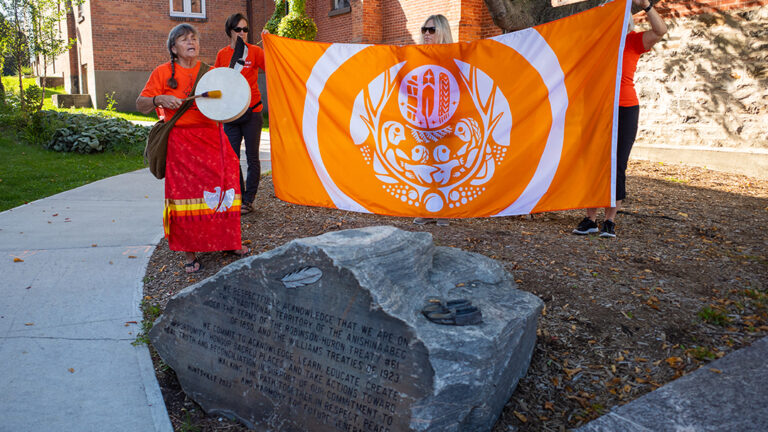The Community Housing Transformation Centre recently held its Annual General Meeting, during which the 2022-2023 Annual Report was presented. It was indeed a year marked by a series of transitions.
Four years have already passed since the establishment of the Centre, which has become a prominent player in the field of community housing in Canada. The Centre continues to redefine itself and evolve, driven by the goal of working with existing structures and in collaboration with organizations in the sector. Despite a reduction in federal funding aligned with the National Housing Strategy’s 2028 deadline, the Centre has made a deliberate choice to prioritize resilience and growth over a focus on decline. To this end, we are working to establish funding agreements with provincial and territorial governments.
Boldness and innovation as driving forces
The Centre’s goal is to play a leadership role in the radical transformation of the culture of Community Housing in Canada. To achieve this, it encourages bold, innovative initiatives that empower the sector, with the aim of making Community Housing a desirable housing model for all.
The Centre has revised its approach to fund allocation, giving priority to initiatives that have a significant impact on the sector. Throughout the 2022-2023 period, our focus was on large-scale projects that promote the growth and stability of the sector. The Centre also fostered innovative partnerships, capacity building and the sharing of knowledge and tools to empower industry stakeholders.
The year 2022-2023 was marked by the Centre’s determination to leverage the sector’s resources towards building the future. Whether by pooling assets with the Plancher project, building on the sector’s agility with the Growth Fund model, or facilitating knowledge sharing with the Resource Inventory, we sought to propel Community Housing forward by pooling our collective assets and strengths.
The upcoming year, 2023-2024, will be an opportunity to build on this momentum. It will also be a pivotal year in terms of transformation for the Centre, as we engage in a strategic planning exercise to redefine our priorities for the next four years.
The challenge ahead of us is to strengthen our leadership as a facilitator, an inspirer, and an enabler of the sector’s capacity for action. This responsibility carries paramount importance in a context where housing is a major concern for both the public and political spheres.
New members on the Board of Directors
Our Board of Directors welcomes three new members this year from whom’s solid experience we look forward to benefit from.

Christina Maes Nino, Executive Director, Manitoba Non-Profit Housing Association.
Christina has dedicated her career to supporting individuals living in poverty, with a particular focus on improving housing conditions. Her experience includes managing cases in supervised housing for formerly homeless individuals in Vancouver’s Downtown Eastside and working as a community development officer in Calgary’s community housing. Pursuing her passion for policy and research, Christina earned a master’s in urban planning from the University of Manitoba. She coordinated Winnipeg’s first street census in 2015, co-authored the Winnipeg Street Health Report (2011), and published chapters in books on “Decolonizing Planning” (2014) and “Poor Housing” (2015).

Ray Sullivan, Executive Director, Canadian Housing and Renewal Association.
Ray has over two decades of experience in the creation, management and advocacy of non-profit affordable housing. He has worked with the Centretown Citizens Ottawa Corporation (CCOC), the Ottawa Community Land Trust and several community housing boards and advisory committees. Former board member of Ontario Non-Profit Housing Association, and former president of Social Housing Registry of Ottawa. Passionate about appropriate housing solutions, Ray continues as Executive Director of CHRA to support and serve the non-profit and Community Housing sector.

Ren Thomas, Associate Professor in the School of Planning at Dalhousie University and founding member of the MacEachen Institute for Public Policy and Governance.
Ren holds a PhD in Community and Regional Planning from the University of British Columbia. She conducts research in housing policy and transportation policy and planning. She is particularly interested in case studies, which allow her and her students to conduct in-depth analysis of policies and programs, comparisons across policies, and meta-analysis to determine more generalizable trends.
We would also like to thank the vital involvement of three Board members who have completed their terms:

Martina Jileckova, CEO of Horizon Housing

Jacques Beaudoin, Director of Public and Legal Affairs at RQOH

Kit Hickey, CEO of Housing Alternatives
>>Read the annual report 2022-2023



